NCERT Solutions for Political Science
Chapter 1 – Democracy in the Contemporary World
Page 3
Intext Questions
Question 1 Why did President Allende address himself mainly to workers? Why were the rich unhappy with him?
Answer
(i) President Allende addressed himself mainly to the worker’s because he was a socialist and had taken several policy decisions to help the poor and the workers.
(ii) President Allende was opposed to foreign companies taking away natural resources like copper from the country. He implemented the policy of the redistribution of land to the landless farmers and free education and free milk for the poor children. The landlords, the rich
and the church opposed his policies and were unhappy with him for supporting the poor.
Page 4
Question 1 Did the army have any legal right to arrest the Defence Minister of the country? Should the army have the power to arrest any citizen?
Answer No, the army did not have any legal right to arrest the Defence Minister of the country (Chile) because the primary duty of the army is to protect the country from outside threats and obey the orders of the government.
The Defence Minister is an important member of the government. The army will not act against its own government and ministers. No, the army should not have the power to arrest any citizen its main work is to defend the country from foreign threats from not the army. It is the duty of the police to arrest the citizens if there is need to do so.
Question 2 Locate and shade Chile on the map, which state in our country has a shape similar to Chile?
Answer Chile is located along the pacific coast in the continent of South America. In our country, Kerala has a shape similar to Chile.
Question 3 President Michelle Bachelet addressing her supporters after her victory in the presidential election in January 2006. From this photograph do you notice any difference between an election rally in Chile and in India?
Answer The difference between an election rally in Chile and in India is that, in India no election rally is held during presidential election and after his/her victory. In India, President is not elected directly by the people. The President of India is elected by the members of an electoral college consisting of the elected members of both the Houses of Parliament and the elected members of the Legislative Assemblies of States and the Union Territories of Delhi and Pondicherry. So the President in India does not directly address his/her supporters as depicted in this picture.
Page 5
Question 1 Poland is famous for its poster art. Most of the posters of solidarity carried this special way of writing ‘Solidarnose’. Can you find similar examples of poster art on wall writing in Indian politics?
Answer Yes, there are similar examples of poster art on wall writing in Indian politics. It is mostly found in West Bengal.
Page 6
Question 1 Locate Poland on the map. Write down the names of the countries that surround it.
Answer Poland is surrounded by Germany, Czech Repulic, Slovakia, Ukraine, Belarus and Lithunia. It is a Central European country.
Question 2 Which other European countries were ruled by the communist parties in the 1980s.Shade them on map.
Answer The east European countries ruled by the communist parties in the 1980s were Belarus, Ukraine, Moldova, Romania, Russia etc.
Question 3 Make a list of political activities that you could not have done in Poland in 1980s but you can do in our country.
Answer The political activities that we could not have done in poland in 1980s but we could do in our country are listed below
Poland
1. We could not form any association or organisation.
2. Those who spoke against the government, party or leader were put in prison.
3. No other political party was allowed to function.
4. Even people could not freely choose the leaders of the Communist Party.
India
1. We could form association or organisation.
2. In our country, freedom of press or freedom of speech in respected and tolerated.
3. In India, we have multi-party system, i.e., various political parties are allowed to function.
4. In our country, the people can freely choose the leaders of their party.
Page 7
Question 1. Anita made a list of the features of all the governments that we have discussed so far. But somehow the list got mixed up. Now she has a list of many features but she does not remember which feature applies to which government. Can you help her by writing the correct feature under the name of the government in the table below? Remember, some of these features may apply to more than one government and would need to be written separately under each these
Answer
| Chile Allende |
Chile-Pinochet Military |
Chile-Bachelet | Poland-Jaruzelski | Poland- Walesa |
| Chile-Alle nde Ruler elected by the people, more than one party exists, people enjoyed – basic political freedoms. |
Chile-Pinochet Military Dictatorship, criticism of the government not allowed, widespread corruption, missing people, ruler not elected by the people. |
Chile-Bachelet Ruler elected by the people, the President was once a political prisoner, more than party exists, people enjoyed basic political freedoms. one |
Ruler not elected by the people, foreign intervention in domestic affairs, criticism of the not government allowed, widespread corruption, government owned all industries. |
Ruler elected by the people, people enjoyed basic political freedom S, more than one party exists. |
Page 10
Question 1 On the basis of these maps identify up to three countries (in some cases you won’t find three countries) that were democratic in there continents for the given years and make a table as given below.
| Year | Africa | Asia | Europe | Latin America |
Answer
| Year | Africa | Asia | Europe | Latin America |
| 1950 | Egypt | Pakistan, India ,Sri lanka | Sweden, Finland | Brazil, Ecuadop |
| 1975 | Botswana | Malaysia, Thailand, Japan | Columbia, Venezuela, Argentina | |
| 2000 | Senegal, Mali Cote D’ Ivorie | Cambodia, Loas, Vietnam | France, spain, Portugal | Paraguay, Uruguay |
(i) Identify some countries from map 1.1 that became democratic between 1900 and 1950.
Answer Brazil, India, Pakistan, Australia.
(ii) Identify some countries from map 1.1 and 1.2 that were democratic in 1950 and 1975.
Answer India, Thailand, Japan.
(iii) Identify some European countries from map 1.2 and 1.3 that were democratic in 1975 and 2000.
Answer France, Spain, Italy.
(iv) Identify some countries in Latin America that became democratic after 1975.
Answer Paraguay, Uruguay.
(v) Make a list of big countries that were not democratic in 2000.
Answer Algeria, Libya.
Question 2) Looking at these maps (given in Q. 1), which period do you find most important in the expansion of democracy? Why?
Answer (i) Looking at these maps given on text book pages 8 and 9, we find the
period 1975-2000 is the most important period in the expansion of democracy.
(ii) During this period, most of the colonies of the world gained independence. Thus, in this period a number of countries have marched towards democracy.
Question 3 Why was an independent trade union so important in Poland? Why are trade unions necessary?
Answer In Poland, the trade unions were controlled by the ruling party, there could be no trade unions independent of the party. When the workers of the Lenin Shipyard in Gdansk went on strike, the strike was considered illegal because it was called by an independent group of workers and not an authorised trade union. In order to have justice, the workers must have
an independent trade union.
Trade unions are necessary because they can take up the cause of the workers in a better and organised manner and get their demands fulfilled.
Page 11
Question 1 Why were women given voting rights much later than men in most countries? Why did this not happen in India?
Answer In most countries, the society was male dominated and traditionally there was sexual division of labour. Men worked outside the homes and earned for the family while the women stayed at home and did the household work and looked after the children. They were not encouraged to join public life so voting rights were denied to them in most countries and societies.
Women in India got voting rights along with men because after becoming independent from the British rule in 1947, the Constitution of Independent. India provided the Universal Adult Franchise which did not discriminate between men and women.
Page 12
Question 1 Locate Ghana in an atlas and then spot it in the three maps in the previous section. Was Ghana a democracy in 2000? Ghana was a democracy in 2000?
Answer Ghana was a democracy in 2000
Question 2 Do you think it is good to elect someone President for life? Or is it better to hold regular elections after every few years?
Answer No, it is not good to elect someone president for life time. It means there will be no elections for that post, till the person is alive. Then he will enjoy absolute power which can make him corrupt and autocrat. This is not good for a country. So, it is better to hold regular election after every few years.
Question 3 Kwame Nkrumah Memorial Park in Accra, the capital of Ghana. This park was commissioned in 1992, twenty years after Nkrumah passed away. What might have caused this delay?
Answer Ghana became independent in 1957. Kwame Nkrumah became the first Prime Minister. In 1966, he was over thrown by the military coup. Ghana could not remain democracy for long. After two decades, on May 1992, the ban on party politics was lifted in preparation for multiparty elections in Ghana. In this changed political scenario, Kwame Nkrumah Memorial Park was commissioned in 1992.
Page 13
Question 1 This cartoon appeared in 2005, when Aung San Suu Kyi turned 60. What is the cartoonist saying here? Will the army rulers feel happy with this cartoon?
Answer 1. The cartoonist wants to say that Aung San Suu Kyi is still under house
arrest at her 60th birthday.
2. No, the army rulers will feel ashamed of their act of keeping Aung under house arrest, after seeing this cartoon.
Question 2 What should be the policy of the Government of India towards the military rulers of Myanmar?
Answer India is well established democratic country, where the citizens enjoy all the fundamental rights and lead a happy and free life. But in Myanmar, democracy has been destroyed and large number of people have been killed and 6 to 10 lakhs have been uprooted from their homes.
So, the Government of India must use its power to influence the autocratic Government of Myanmar to give more rights to the people of Myanmar, India always supported the struggle of pro-democratic leader Aung San Suu Ki of myanmar. But India should also maintain cordial relations with its neighbouring country.
Question 3 Locate Myanmar on an atlas. Which Indian states border this country?
Answer
Question 4 Write a short essay on the life of Aung San Suu Kyi?
Answer Aung San Suu Kyi was born on 19th June, 1945 in Rangoon to General Aungsan, undisputed hero of Myanmar. She was educated in the city of Rangoon until she was fifteen years old. She studied politics at Delhi University. She went to Oxford where she studied philosophy, politics and economics. In 1972, she married British Academic Michael Aris. She has two sons.
She kept on fighting for democracy and freedom for her homeland. She spent a long time in house arrest. She released from house arrest on November, 2010. On April, 2012, she stood for Parliament for first time and won the election. She took oath on 2nd May, 2012 and now she has an official voice in the legislative branch. She was awarded the Nobel Peace Prize in 1991. She is known simply as The Lady’ or ‘Mother Suu’ by millions of her countrymen.
Page 14
Question 1 Should there be a World Government? If yes, who should elect it? And what powers should it have?
Answer
(i) Yes, there should be a World Government.
(ii) It should consist of representatives from each country appointed by the government of the concerned countries because direct election would be too complicated and difficult.
(iii) It should have the power to settle disputes between different countries and solve issues relating environment, peace, poverty, natural resources, human rights, equality etc and other things that affects the international community.
Question 2 This cartoon was published in Mexico in 2005 and was titles International Games?
(i) Which game is the cartoonist talking about here?
(ii) What does the ball symbolise?
(iii) Who are the players?
Answer 2 (i) The cartoonist is talking about the game of football here.
(ii) The ball symbolises the globe which indicates the game of world politics.
(iii) The players are army and the terrorist. They are playing in front of the United Nations headquarters.
Page 15
Question 1 Should the permanent members of the UN be given the power to veto?
Answer No, the permanent members of the UN should not be given the power to veto. The five permanent member has this veto power but it is generally word for their own interest. It is not used for the interest of the international community.
Generally, the fifteen member Security Council of the UN takes crucial decisions. But the council cannot take a decision if any permanent member say no to that decision. Thus many countries protest against the veto power and urge that the UN will be more democratic.
Page 16
Question 1 Find out more about the history and various organs of the United Nations.
Answer 1 The League of Nations
The League of Nations was formed in 1919. The primary objective of the league was promotion of ‘International Co-operation, peace and security’. It had 44 members at the time of inception.
The League of Nations proved to be a failure because the big powers could not settle their disputes peacefully. The League of Nations was replaced by the United Nations in 1945.
The United Nations (UN)
The United Nations came into existence on 24th October, 1945. It was the idea of President FD Roosevelt of America and Prime Minister Winston Churchill of Great Britain to create an agency
that would work for world peace. Delegates from USA, Great Britain, former USSR and China met to make a draft proposal in Washington DC, USA in October 1944. They prepared the charter of United Nations. Initially, 51 nations joined the United Nations. Now, it has 192 members. The headquarters of United Nations is in New York.
The main aims of the United Nations are, to be a centre for helping nations, to keep peace throughout the world and to eliminate poverty, disease and illiteracy from the world. The principles of the United Nations are
1. All members must have sovereign equality.
2. All members must obey the charter.
3. Countries must avoid using force or threatening to use force.
The Organs of the United Nations
The United Nations has six main organs
1. General Assembly : The General Assembly incorporates the representatives of all the member nations. It is like world Parliament. Each state has one vote, but may send five representatives. General Assembly meets at least once a year.
2. The Security Council : This is the most important organ of the UN. It has 15 members. There are five permanent and 10 non-Permanent members. Five permanent members are USA, UK, France, People’s Republic of China and Russian Federation. They have the right to veto, which means if any of them votes against a popularly passed resolution it becomes ineffective. The rest of members are elected for a period of 2 years only.
Security Council has primary responsibility to maintain international peace and security. The expansion of the Security Council to include ‘new powers’ such as India, Germany and Japan as permanent members has been suggested by various fora.
3. The International Court of Justice: It is the main judicial organ of the UN and is situated at the Hague in the Netherlands. It has 15 judges from different countries who are elected for 9 years.
They examine the disputes among the member nations and resolve them. They also provide legal advice to the other organs. The court remains permanently in session, except during judicial vacations. All questions are decide by majority.
4. The Secretariat : The duties carried out by the Secretariat are as varied as the problems. Headquarters of the Secretariat is in New York. The Secretary-General is the administrative head and is appointed by the General Assembly on the recommendation of the Security Council.
5. The Economic and Social Council (ECOSOC) : The Economic and Social Council takes care of the economic and social activities of the UN. The specialised agencies of the UN like WHO and UNICEF work under its supervision. ECOSOC has 54 members. The General Assembly elects 18 members every year for the term of three years. ECOSOC serves as the central forum for discussing international economic and social issues, and for formulating policy recommendations addressed to Member States and the United Nations system.
6. The Trusteeship Council :The Trusteeship Council was formed to help countries under foreign rule to gain independence. All the trust territories became independent. The council will now meet only when it is required. Its members are China, France, Russia, UK and USA.
The United Nations has succeeded in achieving its primary objective. It has prevented large scale wars in many areas. It received the Nobel Peace Prize in 2001 for its achievements in maintaining world peace.
The specialised agencies of the UN have made tremendous contribution to the economic and social development of many member countries. At present, the UN has in total seventeen specialised agencies that carry out various functions on behalf of the UN.
Question 2 Wolfouritz was a senior official in the Department of Defense in the US (commonly called the Pentagon). He was an aggressive supporter of the invasion of Iraq.
The cartoon comments on his appointment as the president of the World Bank.
What does the cartoon tells us about the relationship between the World Bank and the US?
Answer 2 The US attacked Iraq to meet its own end. The US and its allied occupied Iraq and removed Saddam Hussein to make control over the petroleum products of Iraq. In this cartoon, similarly US official wanted to control the affairs of the World Bank at the cost of the other countries for his town country’s interest.
Page 17
Question 1 Here are some suggestions to strengthen world democracy. Do you support these changes? Are these changes likely to happen? Give your reasons for each of these.
1. More nations should become permanent members of the Security Council.
2. UN General Assembly should become like a world Parliament with representatives from each country in proportion to the population of the country. These representatives should elect a
World Government.
3. Individual countries should not have armies. The UN should maintain task forces to bring about peace in case of conflict between nations.
4. A UN President should be elected directly by all the people of the world.
Answer Yes, I support these changes. Yes, these changes are likely to happen.
Reasons
1. More nations should become permanent members of the Security Council so that it can take crucial decisions by more representatives.
2. When the representatives of each county elect a World Government, democracy is realised in the true sense, where all the countries get chances and no difference is made though they may be developed or underdeveloped countries.
3. It will minimise the defence expenditure of the individual countries and help the countries to be economically sound.
4. When the people directly elect the UN President, then he or she will be in favour of the people of whole world.
Question 2 The cartoon ‘Cactus. of Democracy’ was published in 2004. What does the cactus look like here? Who is gifting it, and to whom? What is the message?
Answer
(i) The cactus here looks like the statue of liberty.
(i) An American soldier representing the US is gifting the statue of liberty to the people of Iraq.
(iii) The message is that liberty or democracy which is given by outside (foreign) powers. e.g., US is full of thorns or difficulties. This is not in the interest of the people of Iraq and it will be harmful to them because the US has its own interests in removing the dictatorship of Saddam Hussein.
Page 18
Question 1 Collect information on the debate related to Iraq within the US and the UK. What were the reasons originally offered for the Iraq invasion by the President of the US and the Prime Minister of UK? What were the reasons offered after the war?
Answer
1) The President of the US and the Prime Minister of UK offered following reasons for the invasion of Iraq
(i) Proliferation of nuclear weapons by Iraq.
(ii) Iraq was giving shelter to the Islamic terrorists.
2) (i) After the war, they justified the Iraqi invasion by saying that they wanted to establish democracy in Iraq. But the consequences of the. invasion can be felt by the Iraqi people.
(ii) The reasons which the European countries labelled against Iraq did not come out true instead it shattered the whole country beyond repair.
Question 2 The example of Iraq raises some basic questions that we need to think about
1) Is this the right way to promote democracy? Should a democratic country wage a war and invade other countries for establishing democracy there?
Answer
(i) No, this is not the right way to promote democracy.
(ii) A democratic country does not have the right to wage a war against other countries for establishing democracy there.
2. Does external help work in every case? Or does it work only when the people of a nation are actively engaged in a struggle to make their societies democratic?
Answer
(i) No, external help does not work in every case for establishing democracy in a country.
(ii) External help works mostly when the people of a nation are actively engaged in a struggle to make their societies democratic.
3. Even if external intervention leads to the establishment of democracy in a country, would it last long? Would it enjoy the support of its citizens?
Answer
(i) Generally, democracy does not last long if it is established by external intervention.
(ii) In this case, the majority of citizens does not support it.
4. Finally, is the use of external force to gift democracy to the people in keeping with the spirit of democracy?
Answer The use of external force to gift democracy to the people is not justified in the spirit of democracy.
Question 3 Helping Democracy was a comment on the presence of US forces during the elections in Iraq. Do you think the cartoon can apply to many other situations? Identify some examples from this chapter which this cartoon can help understand.
Answer Yes, the cartoon can apply to other situations also e.g.
(i) General Musharraf used the power of the army to remove democracy and establish the military rule.
(ii) In Myanmar, the military overthrew the democracy and established military dictatorship. Elections were held but the military government refused to recognise the victory of Aung San Suu Ki and put her under house arrest.
(iii) General Pinochet used the army to overthrow democracy in Chile and established a dictatorship.
This cartoon can be applied to many other situations in different countries like Pakistan, Myanmar, Chile, where the army was used not to establish democracy but to overthrow it.
Exercise
Question 1 Which of the following does not lead to the spread of democracy?
(a) Struggle by the people
(b) Invasion by foreign countries
(c) End of colonialism
(d) People’s desire for freedom
Answer (b) Invasion by foreign countries
Question 2 Which of the following statement is true about today’s world?
(a) Monarchy as a form of government has vanished
(b) The relationship between different countries has become more democratic than ever before
(c) In more and more countries rulers are being elected by the people
(d) There are no more military dictators in the world
Answer (c) In more and more countries, rulers are being elected by the people
Question 3 Use one of the following statements to complete the sentence: Democracy in the international organisations requires that
(a) the rich countries should have a greater say
(b) countries should have a say according to their military power
(c) countries should be treated with respect in proportion to their population
(d) All countries in the world should be treated equally
Answer (d) All countries in the world should be treated equally.
Question 4 Based on the information given in this chapter, matching the following countries and path democracy has taken in that country.
| Country | Path of Democracy |
| Chile | Freedom from British colonial rule |
| Nepal | End of military dictatorship |
| Poland | End of one party rule |
| Ghana | King agreed to give up his powers |
Answer 4
| Country | Path of Democracy |
| Chile | End of military dictatorship |
| Nepal | King agreed to give up his powers |
| Poland | End of one party rule |
| Ghana | Freedom from British colonial rule |
Question 5 What are the difficulties people face in a non-democratic country? Give answers drawing from the examples given in this chapter.
Answer People in a non-democratic country face a lot of difficulties like
(i) Dictators do not allow other parties to function.
(ii) Freedom of speech and expression is denied.
(iii) People cannot choose their leaders or change them.
(iv) If the people raise their voice they may be arrested, put in jail and tortured and many times executed.
Question 6 Which freedoms are usually taken away when a democracy is overthrown by the military?
Answer When a democracy is overthrown by the military. The people of that country are deprived of many freedoms. First of all, they lose the freedom of speech and expression and cannot say anything against the military government. Secondly, they are not allowed to form political parties and workers union.
Thirdly, the people are deprived of their right to choose their own leaders, or to change them. After the military Coup in Chile led by General Pinochet the people of Chile were denied all these above mentioned rights.
Question 7 Which of the following positions can contribute to democracy at the global level? Give reasons for your answer in each case.
(a) My country gives more money to international institutions. Therefore, I want to be treated with more respect and exercise more power.
(b) My country may be small or poor. But my voice must be heard with equal respect, because these decisions will affect my country.
(c) Wealthy nations will have a greater say in international affairs. They cannot let their interests suffer just because they are outnumbered by poor nations.
(d) Big countries like India must have a greater say in international organisations.
Answers
(a) It does not contribute to democracy at the global level, because money cannot be the criteria for promoting democracy. All countries both rich and poor should enjoy equal status.
(b) If the voice of small and poor country is heard with equal respect then it will promote democracy at the global level.
(c) If wealthy nations have a greater say in international affairs it will not contribute to the democracy at the global level. As a result the poor countries will be denied equal status and opportunity of development and voicing their views and ideas.
(d) It will not contribute to democracy at the global level because a small country also has the right to have equal say at the international level, democracy cannot be different for the rich and the poor or the big and the small.
Question 8 Here are three opinions heard in a television debate on the struggle for democracy in Nepal. Which of these do you agree with and why?
Guest 1 India is a democracy. Therefore, the Indian Government must support the people of Nepal who are struggling against monarchy and for democracy.
Guest 2 That is a dangerous argument. We would be in the same position as the US was in Iraq. Remember, no outside force can promote democracy.
Guest 3 But why should we bother about the internal affairs Or another country? We should be worried about our business interests there, not about democracy.
Answer I agree with the opinion of guest 2 because it is more balance and reasonable because no outside force can promote democracy.
Democracy should not be imposed on a country by an outside power as is the long run people would not tolerate the other country’s interference in its internal affairs.
Question 9 In an imaginary country called Happyland, the people overthrew the foreign ruler and brought back the old royal family. They said: “After all their ancestors were our kings before foreigners started ruling us. It is good that we have one strong ruler, who can
help us become rich and powerful”. When someone talked about democracy the wise men said it is a foreign idea. Their struggle was to throw the foreigners and their, ideas out of the country. When someone demanded freedom for the media, the elders thought that too much criticism of the ruler would not help them improve their living standards. “After all, the king is so kind and interested in the welfare of all the subjects. Why create problems for him. Don’t we all want to be happy? ” After reading the above passage, Chaman, Champa and Chandru made the following observations:
Chaman Happyland is a democratic country because people were able to throw out the foreign rulers and bring back the king.
Champa Happyland is not a democratic country because people cannot criticise the ruler. The king may be nice and may provide economic prosperity, but a king cannot give a democratic rule.
Chandru What people need is happiness. So they are willing to allow their new ruler to take decisions for them. If people are happy it must be a democracy.
What is your opinion about each of these statements? What do you think about the form of government in this country?
Answer
Chaman’s Statement
Chaman’s statement is incorrect and unacceptable. It can be called a democratic country if the king ruled as a nominal head of the state and real powers of government were exercised by the representatives who are elected by the people. The happyland cannot be called a trudy democratic country.
Champa’s Statement
Champa’s statement is correct and acceptable, because the people cannot criticise the ruler nor can they change him; whereas to be democratic, a country must have a government of ruler elected by the people.
Chandru’s Statement
Chandru’s statement is incorrect because happiness alone does not full the criteria of democracy. Only when the rule is in the hands of the elected representatives of the people, we can call a country a democracy.
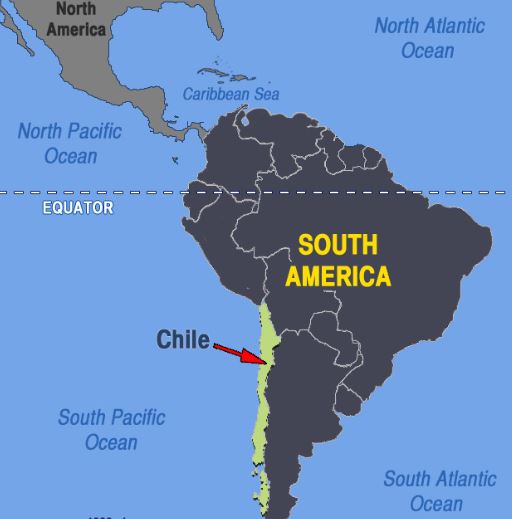
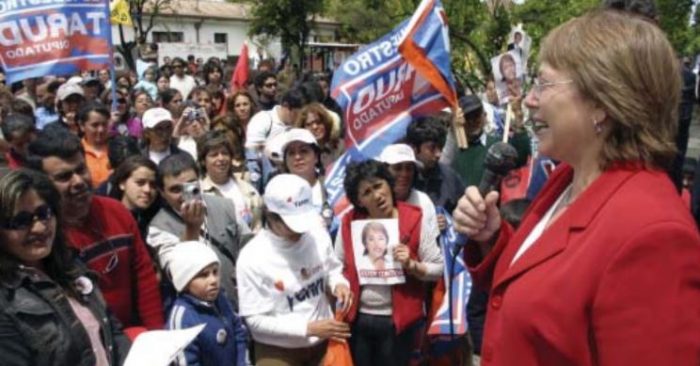

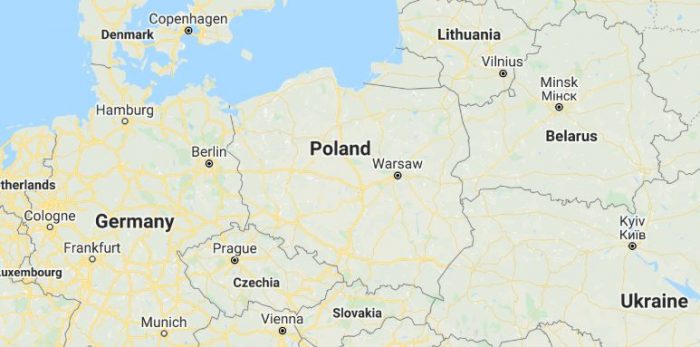
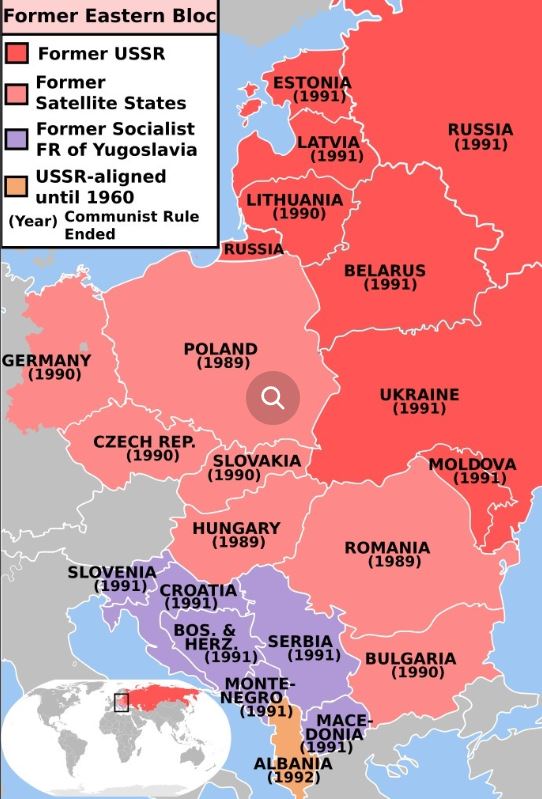
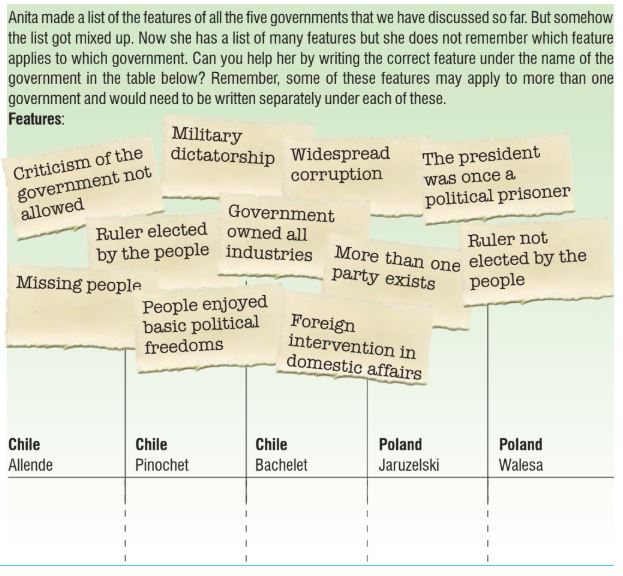
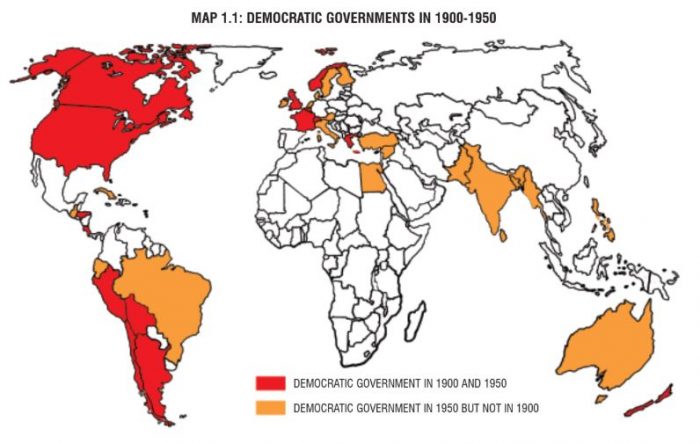
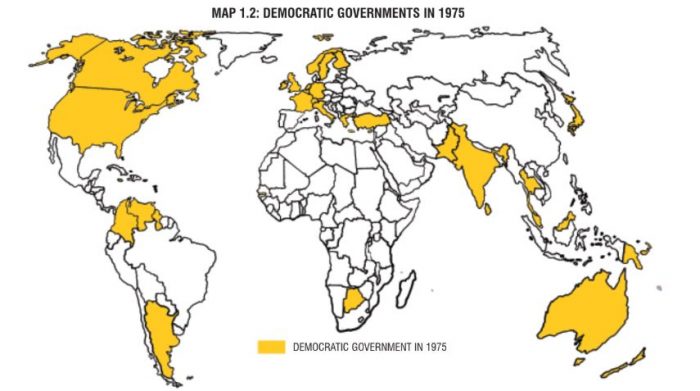
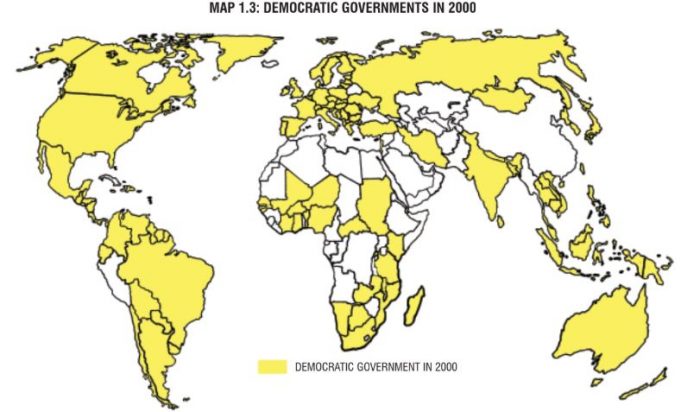
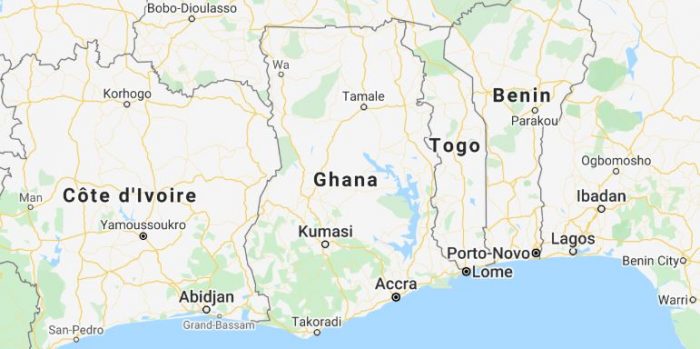
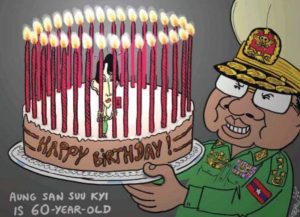
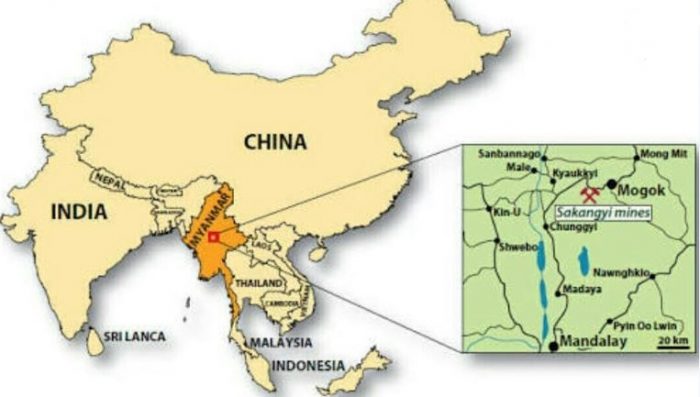
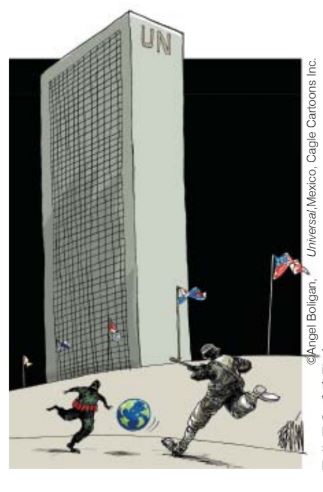
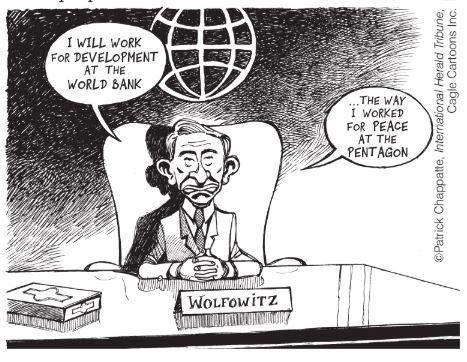
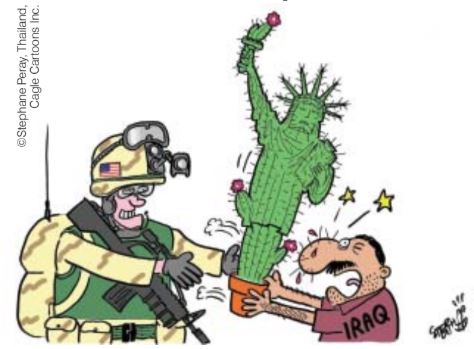
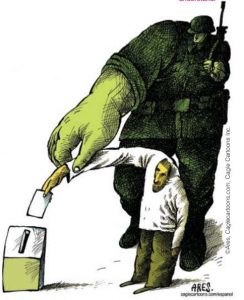
its very helpful for the upsc aspirant. Thank you!
Great work. Thanks for your hard work and free service.